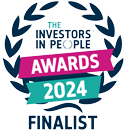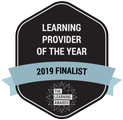
Dual Diagnosis - Substance Misuse and Affective Disorder, course feedback.
The Association for Psychological Therapies prides itself on the written feedback we receive for our courses. Below is just some of the great reviews the Dual Diagnosis course has received.
"Great to have a refresher and affirm that what I do is correct. Lovely trainer – I think the best I’ve had!"
Beverly Edwards, Recovery Worker
"Tutor really engaging, helped with insight into actual cases. Was flexible with tasks, read the room and adapted."
Erica Scott, Mental Health Recovery Worker
"Very relevant to my role. Really enjoyed! Thank you!"
Andrea Lynn
"Very relevant to our job roles. Very well presented and helped reinforce our practice."
Course Delegate, Recovery Worker
"Great course, well delivered by trainer. Good examples of case studies and focusing on key elements relevant to our role. Great resources and reaffirmed what we are doing is correct."
Course Delegate
"I feel this has refreshed and reaffirmed my current working role. I will use some new tools from the session including ‘Action Plan’ and ‘RAID Ladder’. Very well presented, tutor adapted well to every individual within the training. thank you."
Course Delegate, Support Worker
"Really enjoyed the pace and content of the course."
Course Delegate
"Very enjoyable, new ideas learnt to add to working practice. Reaffirmed work already being done within recovery role."
Course Delegate
"Excellent tutor, suitable pace and mix of listening and participation."
Course Delegate, Recovery Worker

Dual Diagnosis - Substance Misuse and Affective Disorder.
A 3-day course (2-day version also available).
Dual diagnosis is generally viewed as a difficult presentation to treat. The patient may be disillusioned with conventional medication, and resigned to 'self-medicating'. And it is a frequent presentation: those with affective disorders are more likely to misuse mood-altering substanes, and those who misuse mood-altering substances are more likely to have affective disorders.
To make matters worse, patients may 'fall between two stools', with substance misuse services reluctant to treat them until they have addressed their affective disorder, and mental health services reluctant to treat them until they have addressed their substance misuse.
In summary, this is a very important presentation, and one which mental health and related services need to have a robust and well-worked response to.

Feedback Ratings.
We continuously monitor the quality of our training by obtaining feedback on the two key scales of relevance and presentation from every course delegate. Below are the average ratings for the last ten runnings of this course, which are updated periodically.
Face-to-Face
Presentation: 99%
Relevance: 96%
Online Live*
Presentation: 96%
Relevance: 93%
*This online live ratings are taken from the last nine runnings of the course in this format.


